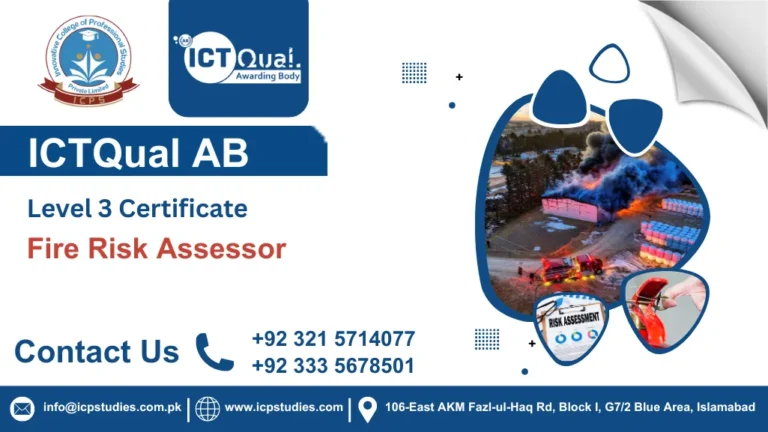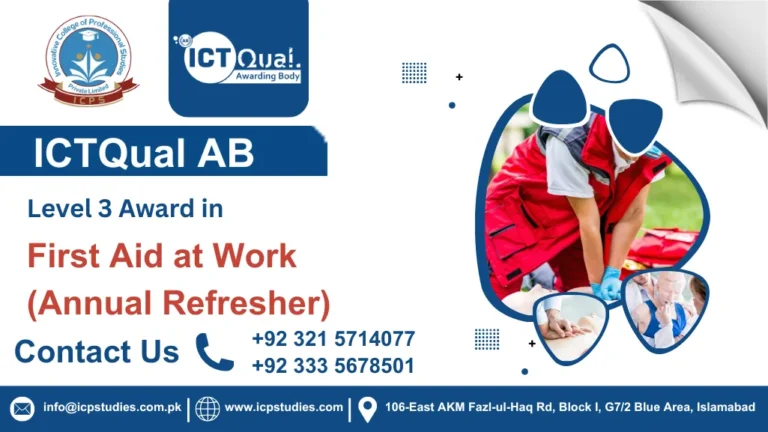In today’s competitive business landscape, maintaining high standards of quality is crucial for organizational success. ISO 9001:2015, the latest iteration of the ISO 9001 standard, provides a robust framework for quality management systems (QMS) that helps organizations enhance customer satisfaction and improve operational efficiency. Central to implementing and maintaining this standard is the role of the ISO 9001:2015 QMS Lead Auditor.
ISO 9001:2015 is an international standard that specifies requirements for a quality management system (QMS). It is designed to help organizations ensure they consistently meet customer requirements and enhance their satisfaction. This version of the standard emphasizes a process-based approach, risk management, and continual improvement, aligning quality management practices with the broader strategic goals of the organization.
The role of an ISO 9001:2015 QMS Lead Auditor is integral to ensuring that organizations uphold high standards of quality management. By leading comprehensive audits, assessing compliance, and recommending improvements, Lead Auditors contribute significantly to organizational success and customer satisfaction. Their expertise not only helps organizations achieve certification but also drives continuous improvement, enhancing overall performance and credibility.
All About ISO 9001:2015 QMS (Quality Management System) Lead Auditor
Course Overview
An ISO 9001:2015 QMS (Quality Management System) Lead Auditor is a specialized professional responsible for overseeing and conducting audits of an organization’s quality management system (QMS) to ensure compliance with the ISO 9001:2015 standard. This role is crucial for maintaining and improving the quality of products and services, ensuring that organizations meet customer expectations, and aligning their processes with international quality standards.
ISO 9001:2015 QMS Lead Auditor is essential for evaluating and enhancing an organization’s quality management practices. By leading audits, assessing compliance, and recommending improvements, Lead Auditors play a key role in helping organizations achieve and maintain high standards of quality management.
Study Units
- Introduction to Quality Management Systems (QMS)
- ISO 9001:2015 Requirements
- Auditing Principles and Techniques
- Audit Process and Methodology
- Audit Documentation and Reporting
- Nonconformity Management and Corrective Action
- Audit Team Leadership and Management
- Continuous Improvement and Best Practices
To enroll in the ISO 9001:2015 QMS (Quality Management System) Lead Auditor course, participants typically need to meet the following requirements:
- Age Requirement: Participants should be at least 18 years old.
- Basic Literacy: A good understanding of English is important, as course materials and instruction are primarily in English.
- Professional Background: Familiarity with quality management principles or relevant experience in quality management systems is beneficial.
- Prior Knowledge: Participants should have a basic understanding of ISO 9001:2015 standards and auditing principles.
- Course Registration: Participants must register for the course through an authorized training provider.
- Payment: Course fees must be paid as required by the training provider.
- Commitment to Attend: Participants should be prepared to attend the full duration of the course to receive certification.
The ISO 9001:2015 QMS (Quality Management System) Lead Auditor course is designed for:
- Quality Management Professionals: Individuals responsible for developing and implementing quality management systems.
- Lead Auditors: Those who conduct internal and external audits of quality management systems.
- Quality Assurance Managers: Professionals overseeing quality assurance processes and compliance.
- Compliance Officers: Individuals ensuring that the organization meets regulatory and quality standards.
- Process Improvement Specialists: Those focused on continuous improvement initiatives within organizations.
- Consultants: Professionals providing advisory services related to quality management and ISO standards.
- Anyone Seeking ISO 9001 Certification: Individuals looking to enhance their knowledge and skills in quality management systems for career advancement.
This course equips participants with the knowledge and skills to effectively audit and assess quality management systems in accordance with ISO 9001:2015 standards, promoting improved quality and operational efficiency.
Learning Outcome
1. Introduction to Quality Management Systems (QMS)
- Understand QMS Fundamentals: Explain the key principles and objectives of Quality Management Systems and their significance in ensuring product and service quality.
- Identify Components: Describe the core components and structure of a QMS, including policies, processes, and procedures.
- Contextualize QMS: Discuss the role of QMS in organizational strategy and its impact on overall performance and customer satisfaction.
2. ISO 9001:2015 Requirements
- Interpret Standard Requirements: Detail the requirements outlined in the ISO 9001:2015 standard, including the clauses and their implications for QMS.
- Application of Requirements: Illustrate how to apply ISO 9001:2015 requirements to establish and maintain a compliant QMS.
- Assess Compliance: Evaluate an organization’s adherence to ISO 9001:2015 standards and identify areas needing improvement.
3. Auditing Principles and Techniques
- Understand Auditing Principles: Define the fundamental principles of auditing, including impartiality, confidentiality, and evidence-based decision making.
- Apply Audit Techniques: Demonstrate effective auditing techniques, such as sampling, interviewing, and observation, to assess compliance with QMS requirements.
- Use Tools and Methods: Utilize various auditing tools and methods to conduct thorough and objective audits.
4. Audit Process and Methodology
- Plan and Prepare: Develop comprehensive audit plans that outline the scope, objectives, and criteria of the audit.
- Execute the Audit: Implement audit methodologies to conduct audits, including data collection, process evaluation, and analysis.
- Follow Audit Protocols: Adhere to established audit protocols and procedures to ensure consistency and reliability throughout the audit process.
5. Audit Documentation and Reporting
- Document Findings: Create detailed and accurate documentation of audit findings, including non-conformities and areas for improvement.
- Prepare Reports: Generate clear and comprehensive audit reports that summarize the audit process, findings, and recommendations.
- Communicate Effectively: Present audit results to stakeholders in a professional manner, ensuring clarity and understanding.
6. Nonconformity Management and Corrective Action
- Identify Nonconformities: Recognize and document nonconformities or deviations from ISO 9001:2015 requirements during audits.
- Implement Corrective Actions: Develop and recommend corrective actions to address identified nonconformities and prevent recurrence.
- Monitor Effectiveness: Evaluate the effectiveness of corrective actions and verify their implementation to ensure continuous improvement.
7. Audit Team Leadership and Management
- Lead Audit Teams: Manage and lead audit teams effectively, including assigning roles, coordinating activities, and ensuring team cohesion.
- Develop Team Competence: Enhance the skills and competence of audit team members through training, feedback, and mentoring.
- Resolve Issues: Address and resolve any issues or conflicts that arise during the audit process, maintaining a focus on objectives and quality.
8. Continuous Improvement and Best Practices
- Promote Continuous Improvement: Advocate for and support continuous improvement initiatives within the organization’s QMS.
- Identify Best Practices: Recognize and implement best practices in auditing and quality management to enhance overall audit effectiveness and organizational performance.
- Drive Organizational Excellence: Contribute to organizational excellence by identifying opportunities for improvement and facilitating the adoption of innovative quality management practices.
These learning outcomes are designed to equip participants with the knowledge and skills necessary to excel as ISO 9001:2015 QMS Lead Auditors. They encompass all aspects of the auditing process, from understanding the standard and applying auditing techniques to managing audit teams and driving continuous improvement.
FAQs about ISO 9001:2015 QMS (Quality Management System) Lead Auditor







